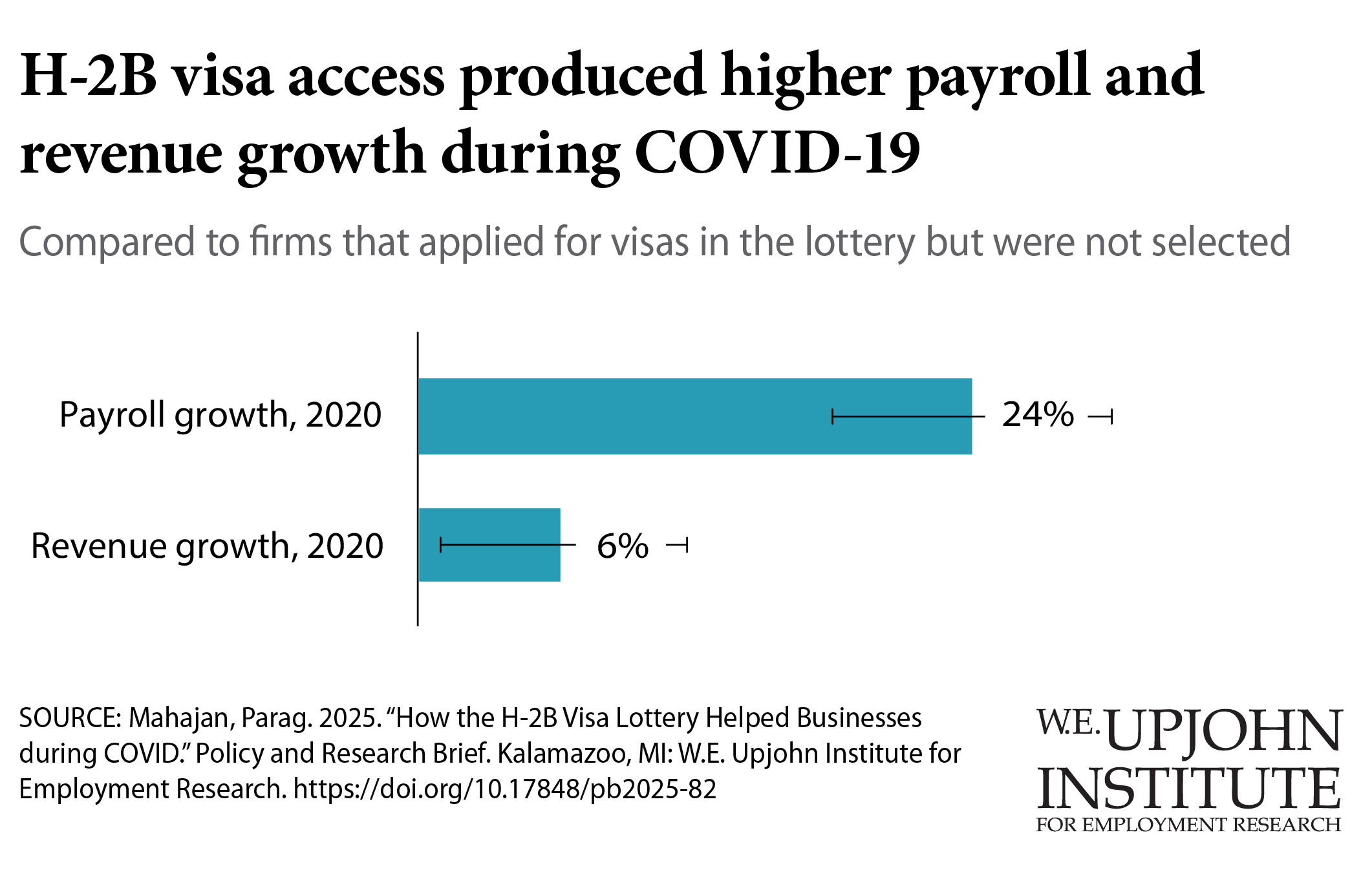
Firms that gained access to temporary foreign workers through the 2020 H-2B visa lottery—just before the COVID pandemic hit—had stronger survival rates, higher payrolls, and more revenue than similar businesses that applied to the lottery but didn’t receive H-2B workers. Moreover, the presence of H-2B laborers did not harm US-born workers.
These findings come from a new study supported by the Upjohn Institute’s Early Career Research Awards.
The study’s author, Parag Mahajan, examined the impacts of the 2020 H-2B visa lottery, which gave selected firms in essential industries the opportunity to hire foreign-born workers between April and December of 2020— the height of the pandemic. Common occupations of H-2B workers include landscaping, construction, forestry, and other manual services.
Visa lottery winners outperformed peers
- Firms that won the H-2B lottery were 2 percentage points more likely to stay open in 2020 compared to firms that entered but did not win the lottery.
- Employers with H-2B visa workers experienced 24% higher payroll growth and 6% higher revenue growth.
- The survival boost was on par with what firms gained from the U.S. government’s Paycheck Protection Program—but at a much lower cost to taxpayers.
 Local economies, US-born workers also benefited
Local economies, US-born workers also benefited
Even firms that didn’t hire H-2B workers saw faster revenue and payroll growth if they were in counties where other firms did have access to temporary labor. This suggests migrant labor supported broader local economies, not just individual businesses.
Importantly, the presence of H-2B workers did not harm domestic workers. Access to these workers helped businesses stay open and grow, which in turn helped U.S.-born workers stay employed and receive raises.
Implications for immigration and economic policy
The 2020 visa lottery created a natural experiment, showing causal effects— not just correlations— between access to temporary migrant labor and business outcomes. This makes the findings highly credible for researchers and policymakers.
“This study provides clear evidence that access to foreign-born workers improved business outcomes during the COVID-19 pandemic,” said Mahajan, assistant professor of economics at the University of Delaware. “Moreover, the data do not suggest these gains came at the expense of non-H-2B workers; instead, in-county exposure to H-2B workers appears to boost employment at non-H-2B firms.”
The findings come as lawmakers and business leaders continue to debate the role of immigration and labor policy in supporting the economy. The research shows that temporary visa programs can be a strategic, fast-acting way to help businesses during economic crises, especially those marked by labor shortages.
The Upjohn Institute’s Early Career Research Awards provide resources for researchers within six years of earning a Ph.D. to carry out policy-relevant research on employment issues
